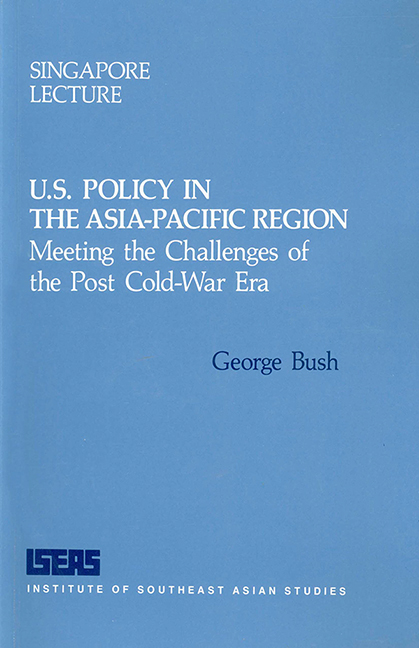I - Opening Address
Published online by Cambridge University Press: 09 November 2017
Summary
Ladies and Gentlemen, to an audience such as this, any President of the United States does not require much introduction. However, the present President requires no introduction at all. You have all seen him on television and during the Gulf War seen him often “live”. Those were moments of high drama. Everyone knew that the principal actor was under great stress. He triumphed.
The Cold War has ended and the Soviet Union has ceased to exist. The Old Order is changing. What will take its place? Just as President Truman at the end of World War II shaped the post-World War world, so President Bush will play a decisive role in shaping this New World. The world needs a strong and healthy United States and one with an experienced, globally-minded President in charge.
Changes are taking place at a breathless pace. In Asia, the countries of ASEAN are catching up with the newly industrializing economies. For the years 1987 to 1990, ASEAN's growth rates were 8 per cent per annum. In the same period, U.S. exports to ASEAN increased by 24 per cent. U.S. imports from ASEAN increased by 19 per cent per annum. On present trends, by the year 2000, the estimated gross domestic product (GDP) for East Asia excluding Japan — which means Korea, China, Taiwan, Hong Kong, Vietnam, and ASEAN — will be US$5 trillion, equal to that of the European Community and approaching that of the United States. That of Japan will be approaching two-thirds of the United States.
President Bush's visit to the Asia-Pacific region is a signal of America's determination to be a principal player in this dramatic transformation of the Pacific Basin, not just in the areas of politics and security but also in economics.
Now, Ladies and Gentlemen, I call upon President George Bush to deliver the Singapore Lecture.
- Type
- Chapter
- Information
- U.S. Policy in the Asia-Pacific RegionMeeting the Challenges of Post Cold-War Era, pp. 1 - 2Publisher: ISEAS–Yusof Ishak InstitutePrint publication year: 1992

